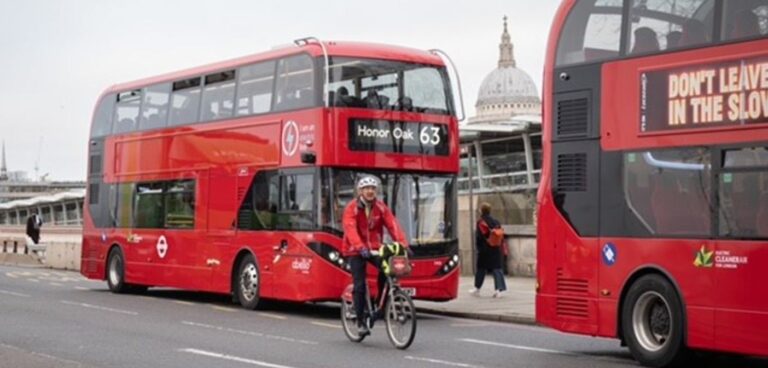Transport for London (TfL) has published its long-term plan for buses, which aims to attract more customers to the bus network and help the UK capital become net zero by 2030.
According to TfL, buses are currently the most used form on public transport in London and its strategy will make the public transport mode an even more attractive alternative to car use.
The plan will focus on five areas:
- An inclusive customer experience – a bus network that allows for spontaneous, independent travel, including improved customer information and bus station refurbishment; with actions including upgrading more existing bus stops to meet the wheelchair accessible standard
- Safety and security – a safe, secure bus network, with no one killed on or by a bus by 2030, and with all elements of the Bus Safety Standard implemented by 2024; and ensuring all customers and staff feel confident on the bus network travelling day and night, including through improved bus driver training
- Faster journeys – a faster and more efficient bus network, with journeys 10 per cent quicker than in 2015, with initiatives including the aim to introduce 25km of new and improved bus lanes by 2025
- Improved connections – a bus network better suited to longer trips with better interchanges, especially in outer London; and ensuring London residents remain close to a bus stop
- Decarbonisation and climate resilience – a zero-emission bus fleet to tackle climate change and improve air quality, working with operators, boroughs and suppliers to reduce the cost and difficulty of infrastructure upgrades needed to enable the transition of the bus fleet; and safeguarding the network from extreme weather conditions
Louise Cheeseman, TfL’s director of buses, said: “Investment in buses is imperative in dealing with the climate crisis and cleaning up the toxic air that is damaging our health. Our red bus network is fundamental to preventing congestion and, more widely, is a catalyst for unlocking homes and employment in London, as well as creating green jobs across the UK.
“Buses are already an efficient, convenient form of public transport and London has the largest green bus fleet in western Europe, but we need to raise the bar. The Bus Action Plan sets out how we will meet the challenges now and into the future, making buses cleaner and greener, more efficient and an option for all our city’s diverse communities. Ultimately, it’s about making the bus the natural choice over the car.
“We can’t do it by ourselves, and in publishing the action plan today we’ll be well placed to start more engagement over the coming months on our shared objective of making London a better place to live.”
Read more: New London electric buses launched but TfL warns no more without funding





